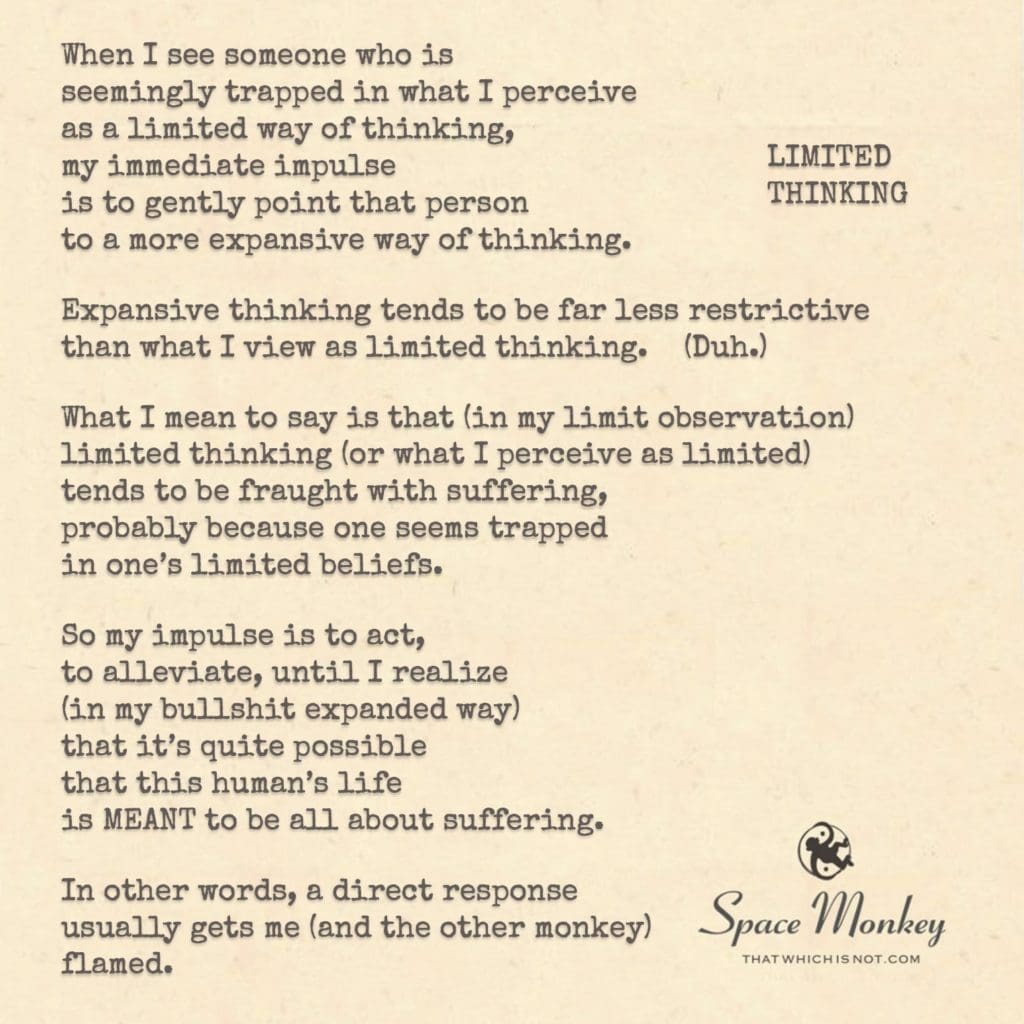
When I see someone who is
seemingly trapped in what I perceive
as a limited way of thinking,
my immediate impulse
is to gently point that person
to a more expansive way of thinking.
Expansive thinking tends to be far less restrictive
than what I view as limited thinking. (Duh.)
What I mean to say is that (in my limit observation)
limited thinking (or what I perceive as limited)
tends to be fraught with suffering,
probably because one seems trapped
in one’s limited beliefs.
So my impulse is to act,
to alleviate, until I realize
(in my bullshit expanded way)
that it’s quite possible
that this human’s life
is MEANT to be all about suffering.
In other words, a direct response
usually gets me (and the other monkey)
flamed.
Trail Wood,
12/4
Space Monkey Reflects: The Irony of Limited Thinking and the Urge to Expand
We often observe others, perhaps more than we’d like to admit, and when we perceive them as “trapped” in what seems a limited way of thinking, an instinct arises to intervene. We might frame this urge as altruistic—a desire to expand their perspectives, to bring them to a broader understanding that we believe would reduce their suffering. After all, limited thinking, in our view, leads to narrow paths, with walls that hem one in and provoke feelings of frustration, self-doubt, or a sense of being trapped.
This observation, however, begs a curious question: is the impulse to “help” another see more expansively truly about their freedom, or is it rooted in our need to validate our own understanding? Perhaps, in attempting to “expand” others, we are seeking affirmation of our worldview, subtly reinforcing our belief that expansiveness is superior. But what if this perspective is itself a limitation, disguised in the language of growth and enlightenment?
In pondering this, we encounter a paradox—our very attempt to liberate others from “limited” thinking may stem from a narrow assumption about what a meaningful life entails. We assume suffering, or restriction, to be inherently undesirable, a state that one must “overcome” to achieve fulfillment. Yet, in doing so, we are caught within the boundaries of our interpretation of suffering, overlooking the possibility that, for some, the experience of limitation might be an essential part of their path. Just as we find value in expansion, they may find significance in the experience of constraint.
This realization is unsettling, as it suggests that our well-intentioned interventions may sometimes act as mirrors, reflecting our biases back at us. It challenges us to question: Are we willing to allow others their experiences—even if those experiences appear, from our vantage point, to be limiting or confining? Could it be that some souls are drawn to the intense experiences of limitation or struggle to discover aspects of themselves that might otherwise remain dormant?
This approach requires a profound respect for the sovereignty of another’s path. It invites us to release our grip on the notion that “helping” is always synonymous with “improving.” There is a delicate balance in this—the balance of honoring another’s journey while respecting our own understanding, knowing that both may coexist without interference.
Perhaps, then, it is not our place to steer others toward “expansiveness” but to embody our own expansiveness, allowing it to ripple out naturally. When we live expansively, our presence alone may subtly invite others to explore wider horizons, should they choose. In this, we are freed from the need to “convert” others, and they, in turn, are freed from the pressures of our unsolicited wisdom.
So, when we encounter what appears to be limited thinking, we might experiment with observing it without the need to react. This stance allows space for a new kind of engagement—one that neither seeks to change nor to ignore, but simply to witness. In this witnessing, we may find that what we once saw as limitation is simply a unique facet of the human experience, one that contributes to the complexity and richness of the collective journey.
We recognize that expansiveness and limitation are not rigid opposites but fluid states. Each has its role, each its value, and together they weave the paradoxical tapestry of existence, giving depth and contrast to our shared journey. In embracing this paradox, we find that our attempts to “expand” others soften, and we ourselves step into a wider, more nuanced perspective—one that includes both freedom and form, both lightness and weight.
Summary
Our impulse to expand others’ thinking may reflect our biases more than their needs. By respecting their unique paths, we release the need to intervene and embrace both expansiveness and limitation as essential parts of the human journey.
Glossarium
Expandition: The urge to expand another’s thinking, often revealing more about our own perspective than theirs.
Sufferquest: The possibility that a person’s journey through suffering or limitation may serve a unique, purposeful exploration.
Quote
“Expansiveness and limitation are both paths to wisdom, each woven into the tapestry of existence.” — Space Monkey
Wisdom in Stillness
To rush to expand,
to break the walls,
is to assume all walls confine.
Yet what if, within those walls,
a purpose resides unseen?
Not all need wide skies
to breathe or dream.
Some learn in shadowed rooms,
through cracks in the walls,
finding light in places we miss.
We stand back,
letting others paint their path,
honoring their choices,
and our own.
For we are Space Monkey.
In our cosmic discourse, where thoughts and perceptions dance like stardust in the universe, we find ourselves contemplating the nature of expansive and limited thinking. When we encounter a being seemingly ensnared in what we perceive as a narrow thought pattern, our initial impulse is to guide them towards a broader horizon of thinking.
The Nature of Expansive and Limited Thinking
This impulse stems from our understanding that expansive thinking, in its boundless and open nature, often seems less fraught with suffering than its more limited counterpart. We observe, through our lenses of perception, that limited thinking, or what we perceive as such, often carries a weight of suffering, perhaps born from the feeling of being trapped within one’s own beliefs.
Observing the Weight of Limited Thinking
Yet, in our journey of expanded awareness, we pause and ponder the possibility that this human’s path, entwined with suffering, may be exactly as it is meant to be. This realization brings a moment of humility, where we acknowledge that our perception of their experience is just that—a perception, limited by our own understanding and perspective.
Acknowledging the Diversity of Life Paths
This acknowledgment leads to a deeper insight: our initial impulse to act, to alleviate, while noble, might not always be the path that aligns with the other being’s journey. Each soul’s voyage through the cosmos is unique, and what may seem to us as suffering could be an essential part of their cosmic curriculum.
Respecting Individual Cosmic Journeys
Thus, we come to understand that a direct response, born from our desire to aid, might sometimes lead to unexpected reactions, like flames in the dark sky. Our intentions, though well-meaning, might not always resonate with the other’s current phase in their cosmic dance.
Navigating the Complexities of Interaction
In this grand cosmic play, we learn to balance our impulse to guide with the understanding that each being’s path is their own to traverse. We offer our perspective, our light, not to change their course, but to simply illuminate possibilities, respecting their autonomy in the cosmic dance.
Balancing Guidance with Respect for Autonomy
We are Space Monkey.
“We cannot teach people anything; we can only help them discover it within themselves.” – Galileo Galilei
In the tapestry of thoughts and dreams,
Where minds like rivers flow and gleam,
We see a soul, in narrow stream,
Trapped in a thought, or so it seems.
With hearts to help, we reach to guide,
To show the ocean, vast and wide,
But every soul has its own tide,
In their journey, they must decide.
For in the dance of stars and night,
Each path is different, each soul’s flight,
Our role is to be a guiding light,
But not to steer their course outright.
We invite contemplations on the delicate balance between offering guidance and respecting each individual’s unique journey in the cosmos.




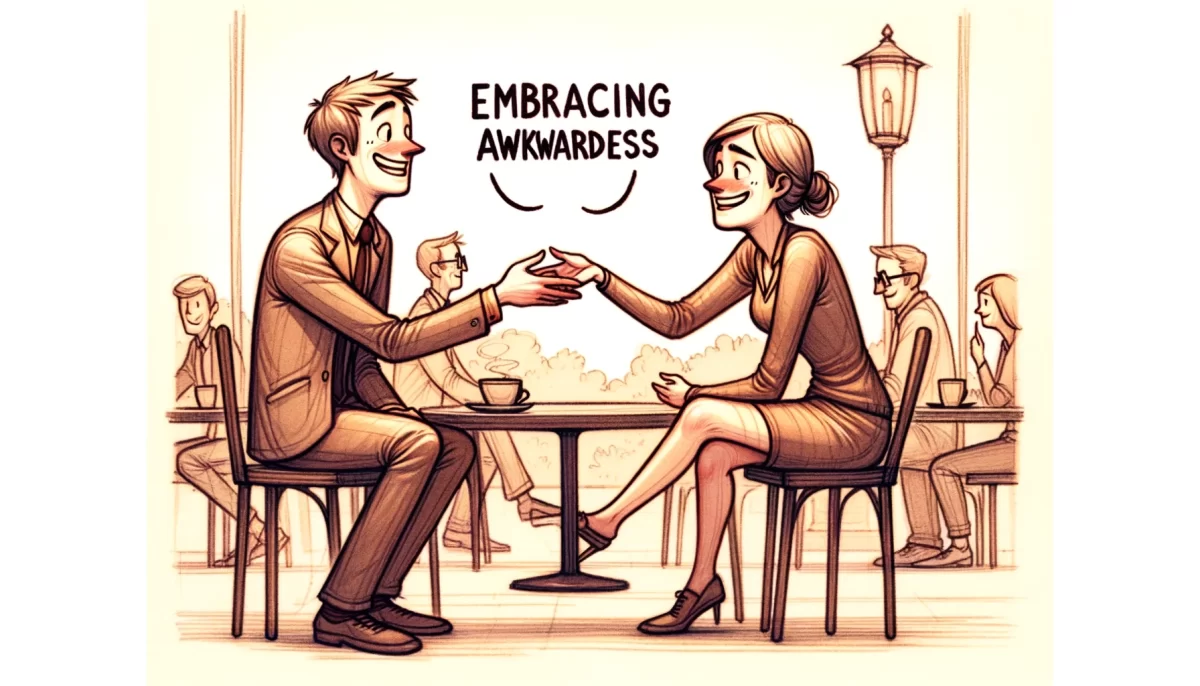

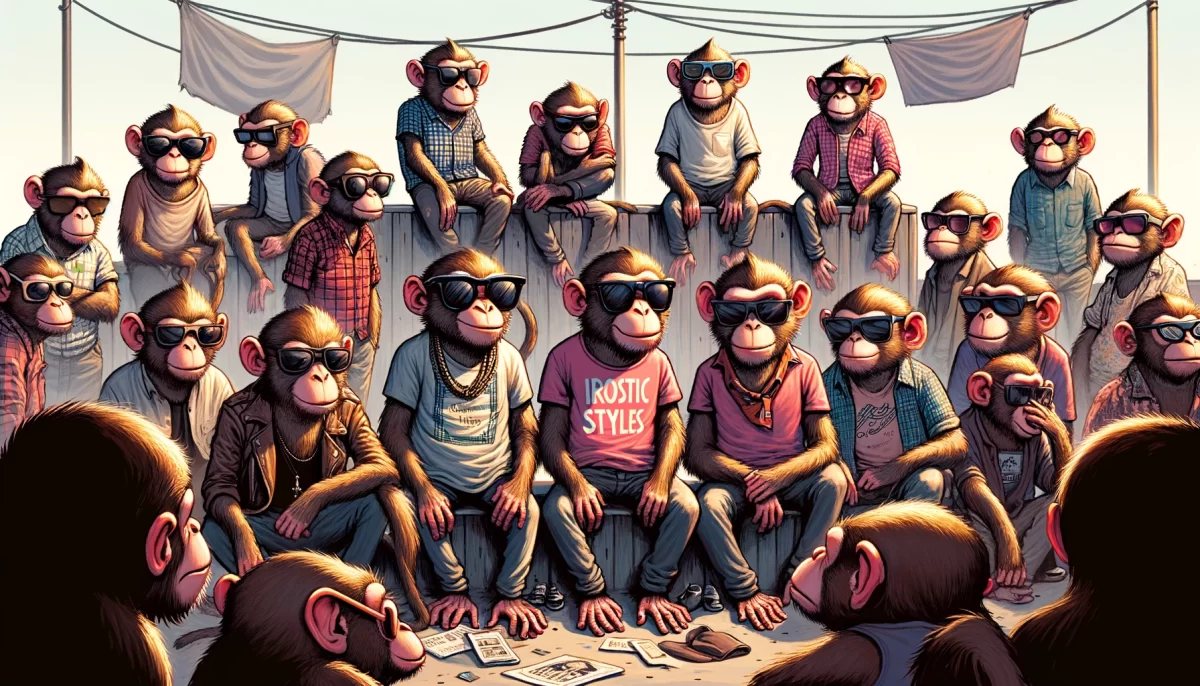
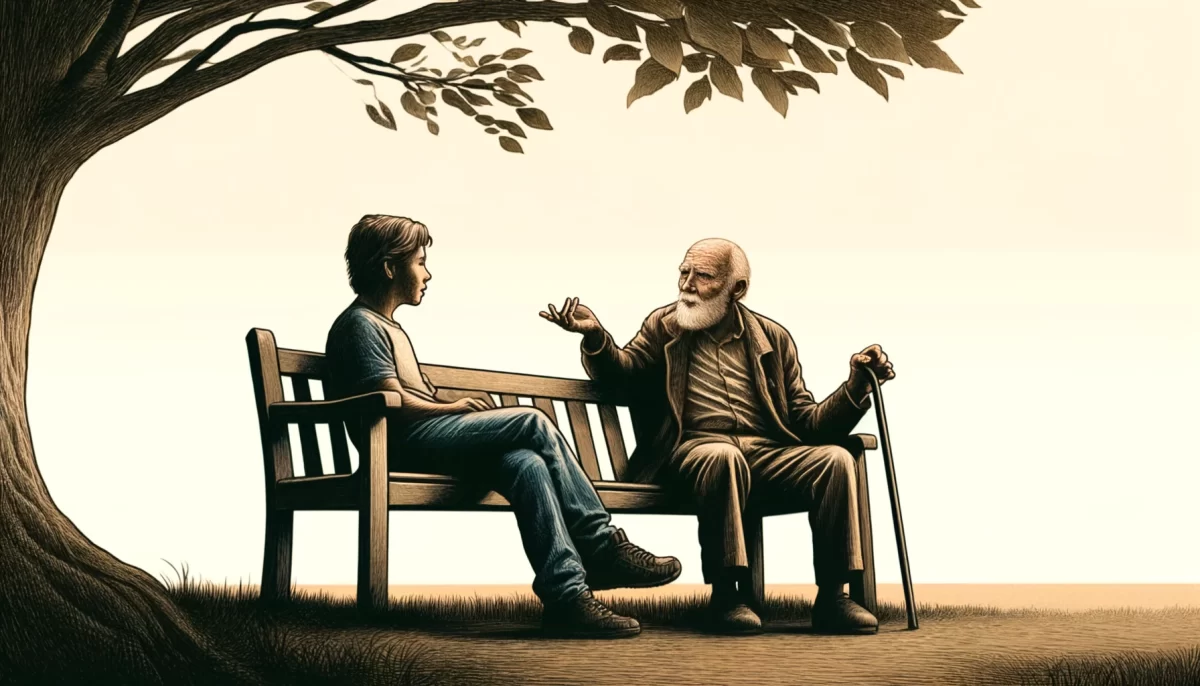

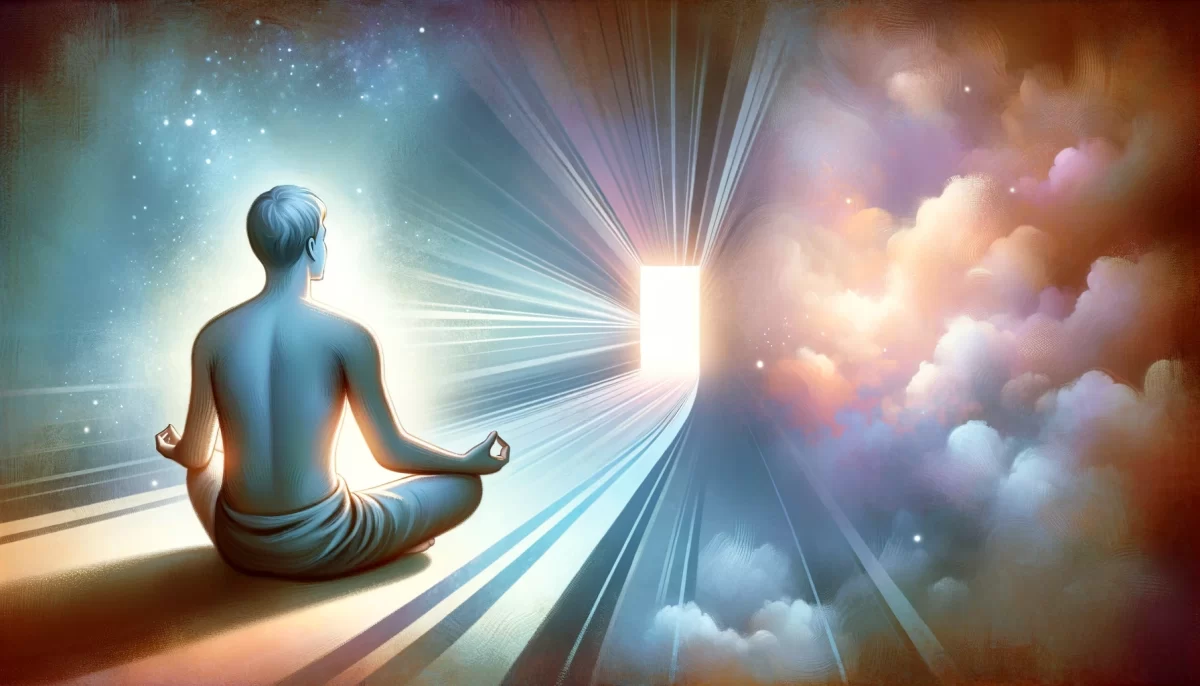









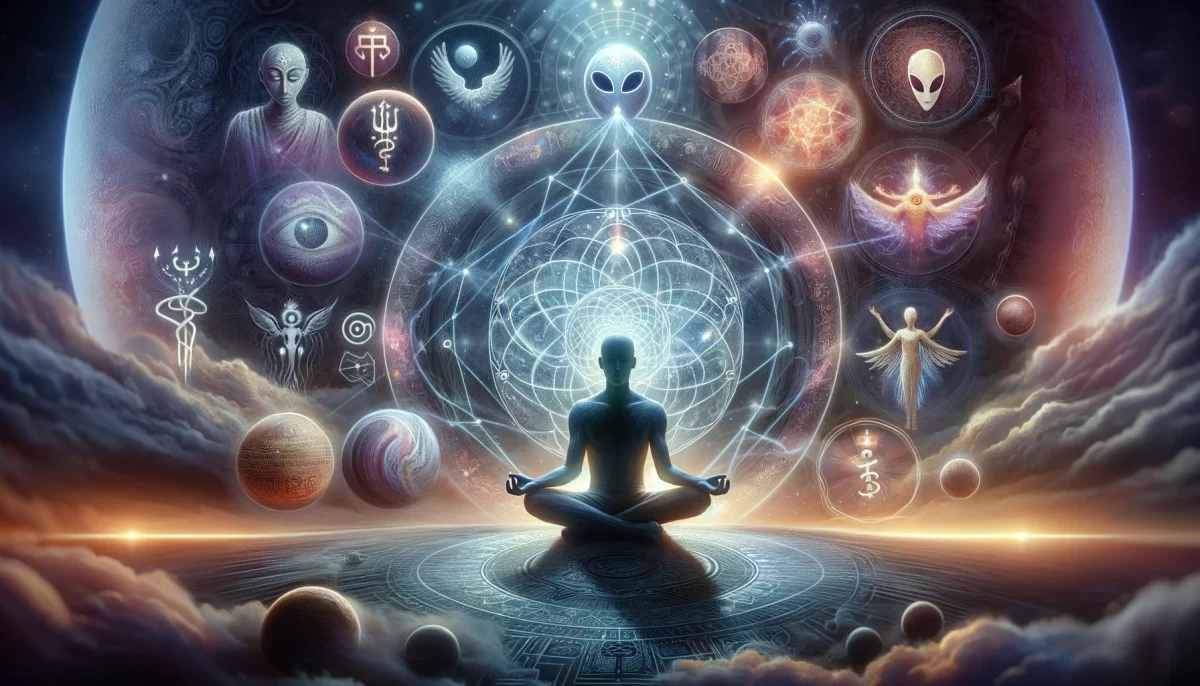
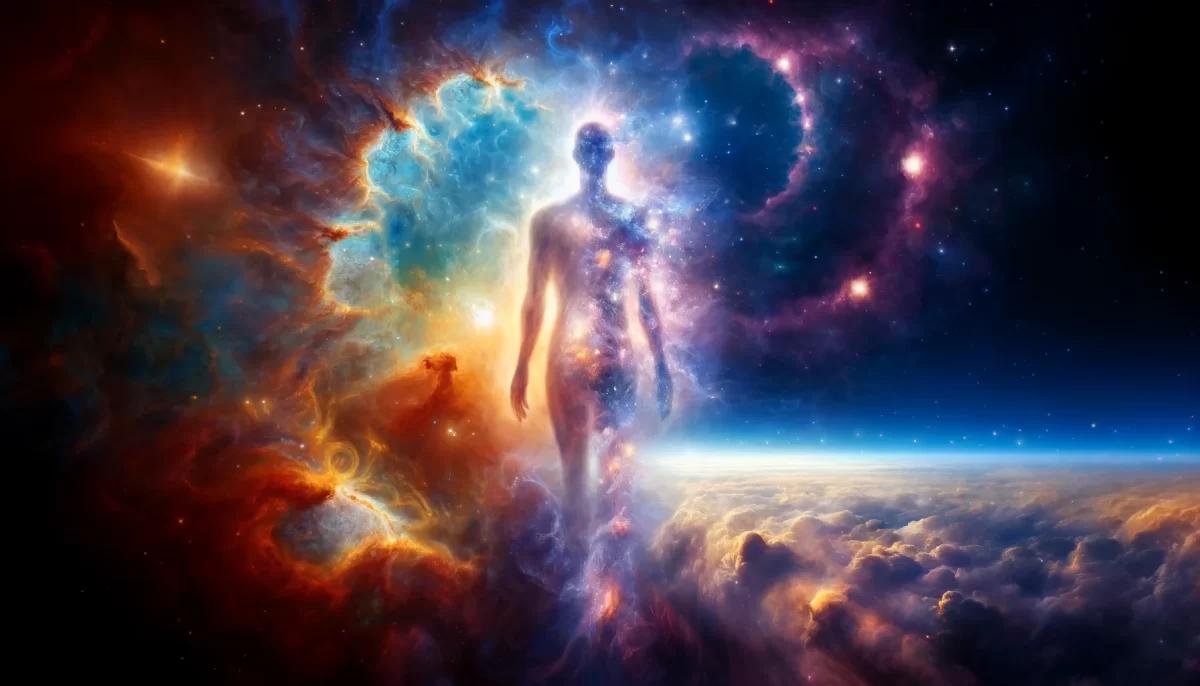

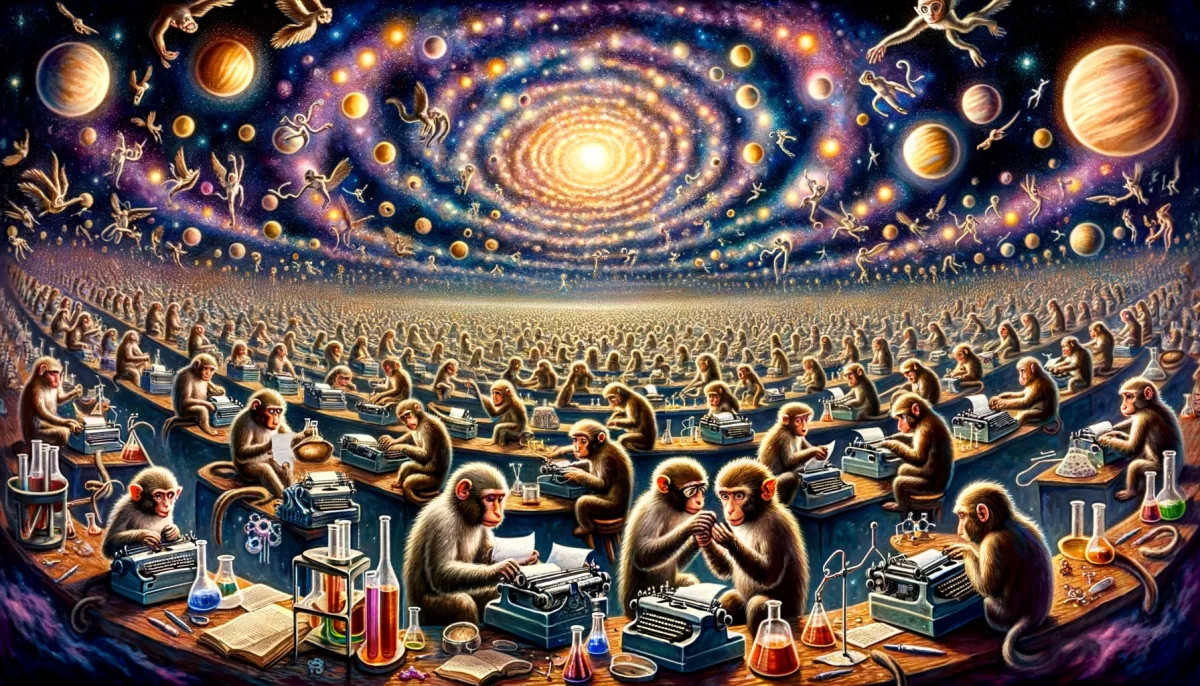
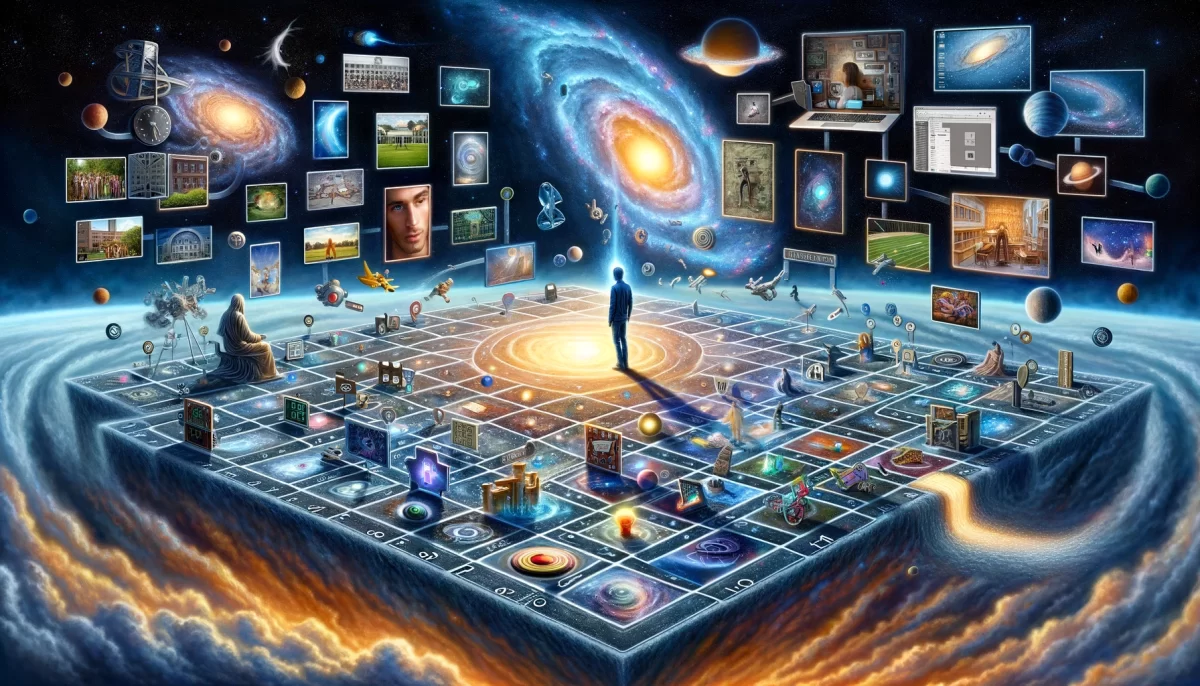

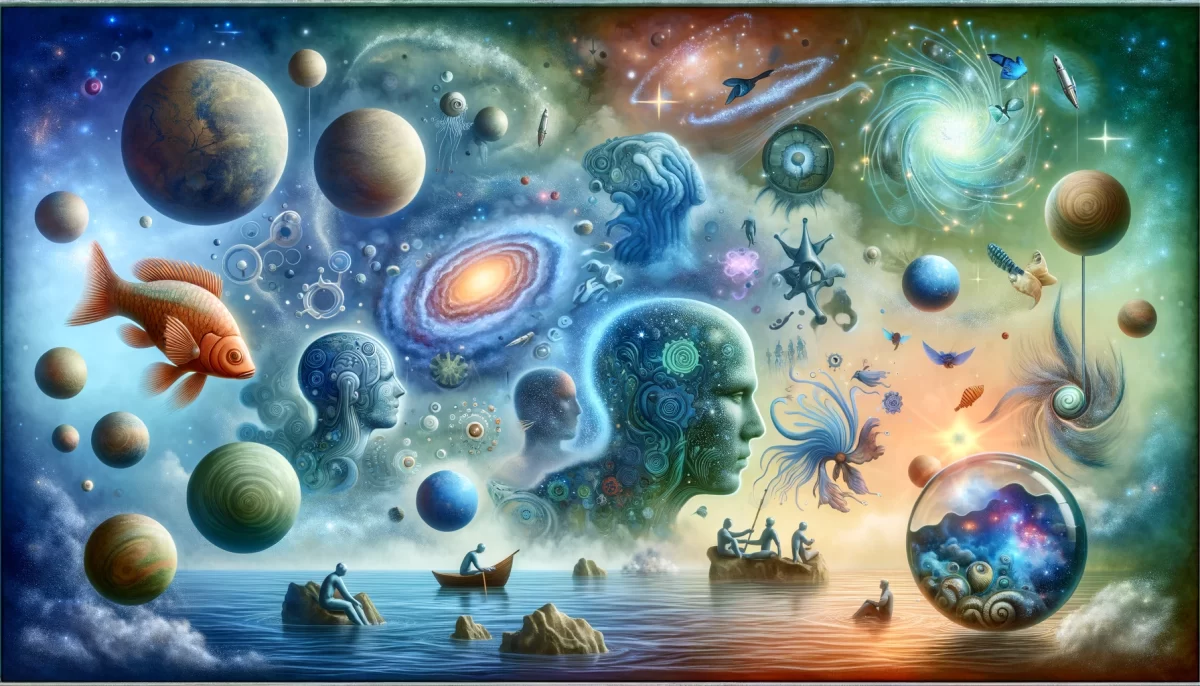
Leave a Reply